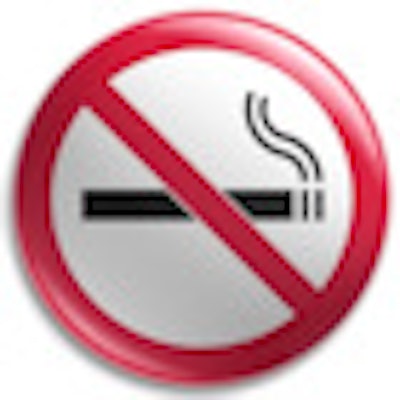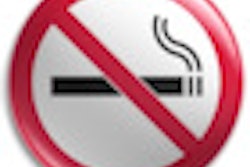
MELBOURNE (Reuters) - Philip Morris on Tuesday became the third tobacco giant to file a legal challenge against new Australian laws that will force tobacco products to be sold in dull, plain packaging from late next year.
The tough, world-first legislation cleared by parliament is being closely watched by governments considering similar moves in Europe, Canada, and New Zealand. It has angered tobacco companies worried it may set a global precedent and infringe on trademark rights.
Under the laws, cigarettes, pipe tobacco, and cigars have to be sold in olive green packs free from branding, but carrying graphic health warnings, from December next year.
Philip Morris, with a 37% market share in Australia for its brands including Marlboro and Alpine, said the government had passed a law that acquired its "valuable brands and intellectual property" without offering compensation.
"We believe plain packaging violates the Australian Constitution because the Government is seeking to acquire our property without paying compensation," company spokesman Chris Argent said in a statement.
Argent said Philip Morris Asia was seeking a ruling from the Australian High Court, the country's supreme judicial body, that the government could not prevent the firm from using branding on its cigarette packaging. Based in Melbourne, Philip Morris's Australian manufacturing arm employs 800 people.
In recent weeks, British American Tobacco and Imperial Tobacco launched separate High Court challenges.
Philip Morris said last month it was seeking arbitration over the new laws, through its office in Hong Kong.
"Big tobacco just can't give up their addiction to legal action," said Attorney General Nicola Roxon. "They have fought governments tooth and nail around the world for decades to stop tobacco control."
"Big tobacco is fighting against the government for one very simple reason -- because it knows ... that plain packaging will work. While it is fighting to protect its profits, we are fighting to protect lives," she said in an emailed comment to Reuters.
Emerging markets
In 2005, the World Health Organization urged countries to consider plain packaging, estimating more than 1 billion people are regular smokers, 80% of them in poor countries.
The Himalayan nation of Bhutan banned the sale of tobacco outright this year.
Industry analysts say tobacco companies are worried that plain packaging could spread to important emerging markets like Brazil, Russia, and Indonesia, and threaten growth there.
Legal experts have predicted both legal and WTO [World Trade Organization] challenges will fail because intellectual property rights agreements give governments the right to pass laws to protect public health.
Australia's tobacco market generated total revenues of about A$10 billion in 2009, up from A$8.3 billion in 2008, although smoking generally has been in decline. About 22 billion cigarettes are sold in the country each year.
Britain decided last week to delay its consultation on plain packaging of tobacco products as it considers a series of issues after Australia introduced the new laws.
By Victoria Thieberger
Last Updated: 2011-12-20 17:39:34 -0400 (Reuters Health)
Copyright © 2011 Reuters Limited. All rights reserved. Republication or redistribution of Reuters content, including by framing or similar means, is expressly prohibited without the prior written consent of Reuters. Reuters shall not be liable for any errors or delays in the content, or for any actions taken in reliance thereon. Reuters and the Reuters sphere logo are registered trademarks and trademarks of the Reuters group of companies around the world.



















